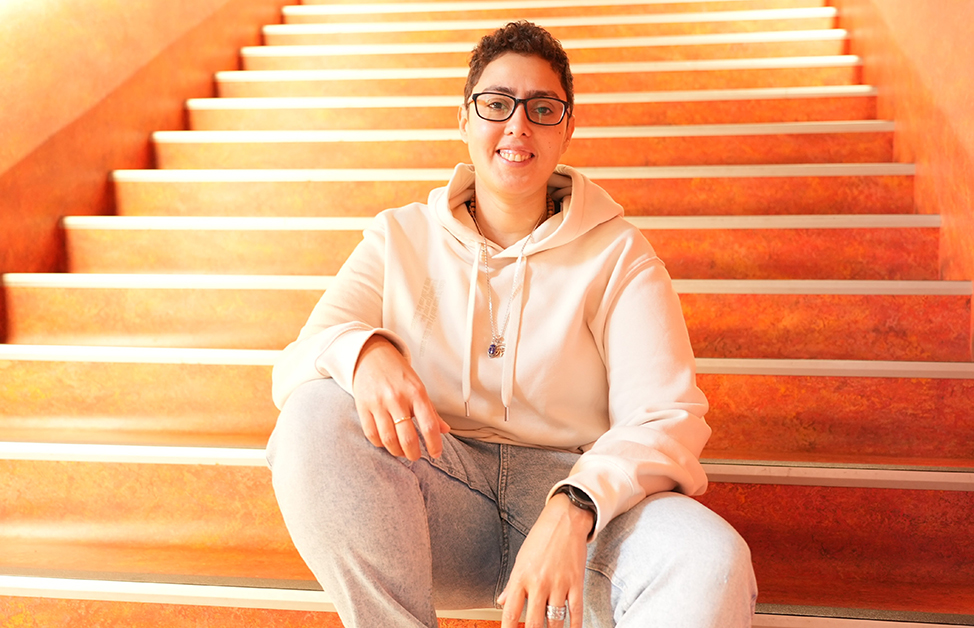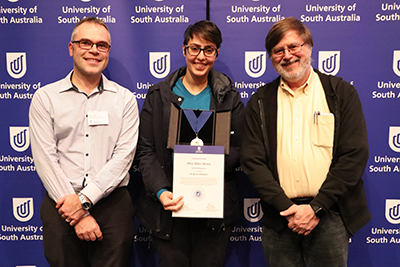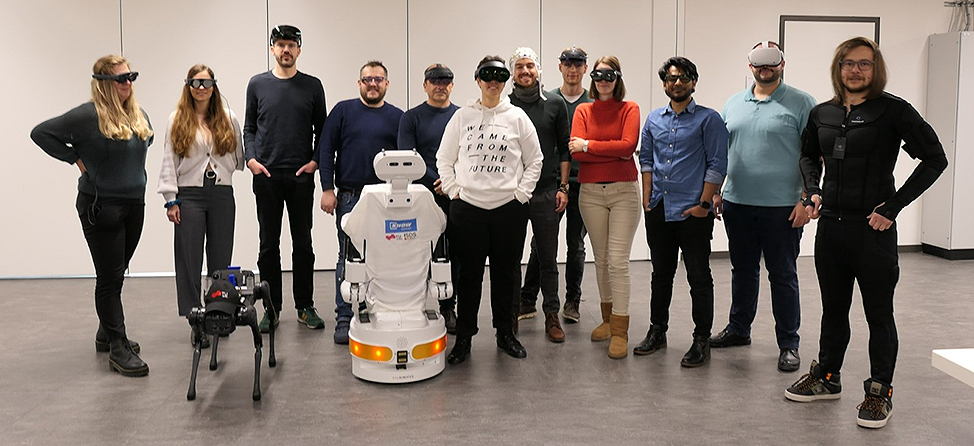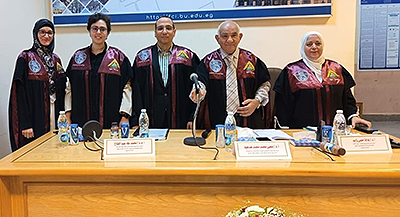18 October 2024
A thirst for knowledge and a journey across thousands of kilometres has helped Egyptian UniSA alum Neven Abdelaziz Mohamed Elsayed lead her country into the future of Augmented Reality (AR) with the nation welcoming its first AR PhD graduate in 2024.

Neven Abdelaziz Mohamed Elsayed
Immersive Analytics Project Lead, Know Center, Graz University of Technology
PhD in Computer and Information Science
For Egypt’s Neven Abdelaziz Mohamed Elsayed, a career in AR would have never become a reality if it weren’t for an internet video she stumbled upon after completing her bachelor's degree.
Ready to embark on her masters, specialising in games development to incorporate her joint passions for visual art and technology, Neven had a change of heart.
“I saw this video of a box flying over an AR marker. It’s a computer graphics technique where you put a marker in front of a webcam and it adds virtual content to it. When a user shows the marker to the application, it turns the marker into a virtual cube in the air and it looks like magic, but it is computer generated,” she says.
All it took was this one video to have Neven “hooked” on the fascinating world of AR. It wasn’t long after that Neven changed her career trajectory to focus on augmented reality.
In 2010, Neven completed her Master in Computer Engineering in Egypt but she was still keen to learn more in this innovative new field.
Neven applied for a prestigious scholarship from Egypt’s Ministry of Education to progress her studies in AR at a global university of her choosing. If successful, she would then be tasked with implementing this technology back home.
After four years of patiently waiting, Neven received the life-changing news: she had been selected for the prized bursary at the University of South Australia (UniSA), her first pick.
“I wanted to study at UniSA due to the innovative technology, which was AR,” she says. “UniSA professors are very well known in the AR space especially Professor Bruce Thomas. Whenever you read journal articles his name is there.”
Neven on a mission

and Professor Bruce Thomas.
Professor Bruce Thomas, nationally and internationally recognised for his contributions to the scientific community, forms part of the leadership team at UniSA’s Australian Research Centre for Interactive and Virtual Environments (IVE). IVE is one of the largest concentrations of AR and virtual reality (VR) research in Australia, collaborating with industry partners to transform and solve large-scale societal challenges.
Neven says being awarded the scholarship was a proud moment as it gave her a sense of “national responsibility”.
“I was on a mission to bring a new generation of researchers into the AR field from Egypt.”
After completing her PhD in Computer and Information Science from UniSA in 2017, Neven began imparting her newfound AR knowledge in Egypt.
She first developed course content, embedding AR into a newly created third year Computer Graphics course in the Bachelor of Computer Science at Egypt’s Benha University, which she then began teaching in late 2017. She also co-founded the MAB Engineering Institute in Egypt’s capital Cairo, where school aged children are taught about virtual reality (VR) and robotics.
A year later, she created Benha University’s ARC innovation lab, where tertiary students are given practical experience with AR technology.
UniSA fosters growth and open discussion
Neven says UniSA was the perfect place for her to flourish.
“Everyone is very friendly. It never feels wrong to ask questions. UniSA is a peaceful place to grow your ideas without people judging.”
Neven’s desire for knowledge never waned nor did her connection to UniSA.
In 2022, she was offered a senior research position as a project lead in immersive analytics at the Know Centre at Graz University of Technology, Austria.

Neven jumped at the opportunity, but she also had another idea brewing: bringing the two universities and their talents together.“I knew what they were doing at UniSA. I kept collaborating with UniSA even when I was in Egypt. I thought there were cool parts that we could work together on. The IVE team can do fatigue studies and have good experience doing it. This is something they don’t have in Austria,” she says.
Neven proposed the idea to her project’s principal investigator Professor Eduardo Veas and in September 2024, she was once again back in Adelaide for several weeks collaborating with IVE and UniSA’s Behaviour Brain Body Research Centre (BBB) staff. The project explores how long-term performance and operational efficiency among factory workers can be improved through AR technology.
UniSA’s supportive environment and Neven’s longstanding connection with the institution gave her the confidence to pursue global projects. “It’s nice to work within a team that’s willing to share information so we can build something together,” she says.
While the project is among Neven’s career highlights, nothing could trump her two latest milestones.
“We had our first Egyptian AR PhD graduate from an Egyptian university in 2024. We’ll also have the first long-form paper by an Egyptian institute, where all the authors are from an Egyptian university published at the International Symposium on Mixed and Augmented Reality (ISMAR) conference this October,” she says.
“I dreamed to have a publication by an Egyptian institute at that conference, since that’s never happened, and this year, we did it.”
ISMAR is the premier conference for AR, mixed reality (MR) and VR. It attracts world leading researchers from both academia and industry.
Mission a success

with Nevan, Dr Mohamed Taha, Professor Mohiy M Hadhoud
and Professor Hala Zayed.
Neven says these two accomplishments reassure her that her mission has been a success.
“It provides proof that the knowledge is being transferred. Researchers in Egypt can work independently and can collaborate in the AR field,” she says.
Neven hopes to continue to involve herself in research that positively influences humanity and sparks ongoing interest in the AR field.
“I want to simplify big complex topics to inspire,” she says.




